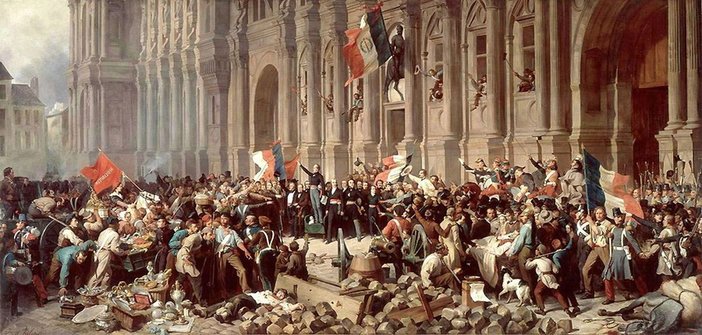This collective work covers the period from 1780 to 1848. The revolutions were led by the people and subsequently co-opted by the bourgeoisie. The absolute monarchies derived from medieval concepts, with society divided into estates, were outdated. The revolutions that began in France in 1789 aimed to change the order of political responsibilities and the exercise of power.
In 1830, and especially in 1848, two new concepts emerged: Sovereignty and the Nation. The first transferred the origin of power to the people, who alone are sovereign; the second gave countries under foreign domination the sense of being an entity, a Nation. Thus, aspirations for independence in Greece and Belgium, and the necessity to unite into a Nation for Germany and Italy, began to develop. 1848 is, in fact, the start of the 19th century, a century that would end in 1914.
The Congress of Vienna stabilized peace in Europe for about thirty years. Metternich’s system had a flaw, which also led to its downfall: it ignored or rather wanted to ignore the events in France since 1789. The people had overthrown the old regime. Nothing could be as before, despite Louis XVIII’s declarations.
By ignoring the people, it led to two revolutions in Europe and then the fires of the 20th century that bloodied the old continent and the world. This book is admirably documented by three authors born in the 1920s; they had sufficient hindsight to analyze this period and its consequences.
Thierry Jan


